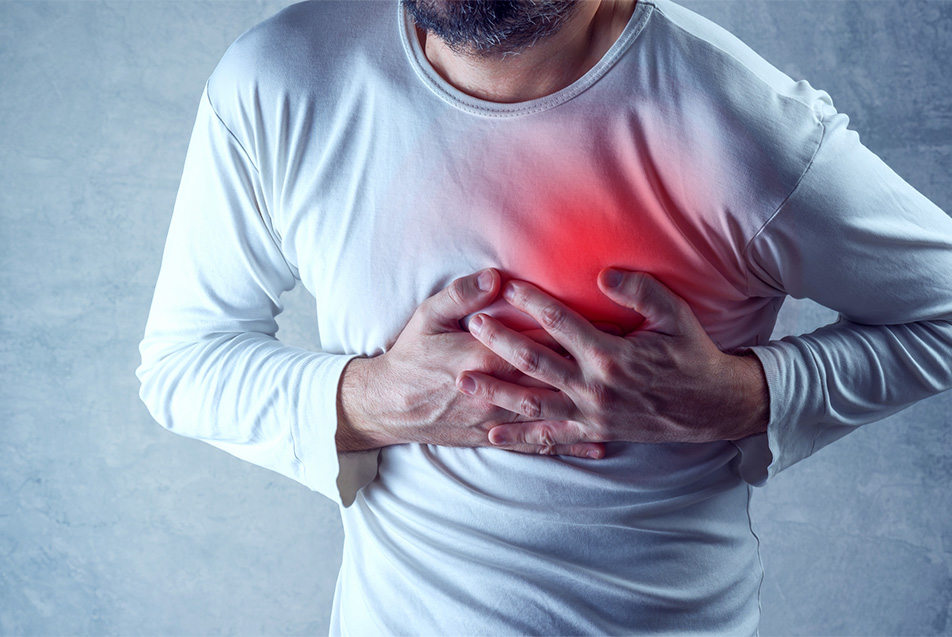
If you were experiencing a heart attack, would you be able to identify it in time? Some of the common symptoms of a heart attack are well known to us, such as tightness in the chest, pain in the left side of the body, feeling weak or light-headed, pain or discomfort in the jaw, neck or back, pain in one or both arms and shoulders, and shortness of breath. But often a heart attack comes without clear warning signs. Sometimes the symptoms of a heart attack don’t even occur in the chest and it is not easy to identify an incoming heart attack.
Forewarned is forearmed. Here’s all that you need to know about the symptoms of heart attack and what timely steps you can take to save your life:
What is a heart attack?
A heart attack is also known as a myocardial infarction (MI) occurs when a part of the heart muscle doesn’t get enough blood. The more time your heart is left without a blood supply, there is greater the damage to the heart muscle.
Warning signs of a heart attack:
- Chest discomfort
Chest pain or discomfort is one of the topmost signs of heart danger. If you have blocked arteries or are having a heart attack, you might feel pain, tightness or pressure in your chest. Everyone describes the symptoms differently. A common description is a pinching or burning sensation in the chest or like an elephant is sitting on you.
Brief pain that doesn’t last long and only hurts when you press a spot is unlikely to be a heart attack. Yet, you must still get it checked out because heart attack symptoms manifest differently.
- Nausea, Indigestion, Heartburn or Stomach pain
Some people experience symptoms of dizziness, nausea, heartburn or even stomach pain when going through a heart attack. If you are at risk for heart problems and face any of these issues combined with vomiting, don’t take it lightly. Speak to a doctor urgently and get to the bottom of the cause.
- Pain that spreads to the arm
One prominent complaint that heart attack causes is pain that radiates down the left side of the body. “It starts typically from the chest and moves outward,” says the Best Cardiologists at AMRI Hospitals. “But often there are patients who mainly have arm or shoulder pain that turns out to be a heart attack. In any case, do not ignore any of these indicators.”
- Throat or Jaw pain
Often this is the most ignored symptom because throat and jaw pain can be caused by a number of issues including muscular pain, cold or sinus. Watch out if you have pain or pressure in the chest that spreads upwards to the jaw or throat. This could be a warning of a heart attack. You can call emergency services and seek help.
- Feeling dizzy or lightheaded
If you suddenly start feeling unsteady on your feet and also have extreme discomfort or shortness of breath, get in touch with a doctor right away. Your blood pressure might also drop because your heart is not able to pump the way it should.
- Extreme fatigue
If you very fatigued or winded after doing simple tasks such as climbing the stairs or carrying groceries from the car, it is cause for concern. Extreme exhaustion or weakness that lasts for a few days can be a symptom of heart disease.
- Profuse sweating
Many people break out in a cold sweat when undergoing a heart attack. If this happens along with any of the above-mentioned signs, then call emergency services without further delay.
- Persistent cough
In most scenarios, a persistent cough is just cough. But if you have pre-existing heart conditions or are at risk, then you may need to pay special attention to the possibility of heart attack. Sometimes patients complain of a long-lasting cough producing white or pink mucus. This could be a sign of heart failure, occurring when the heart can’t keep up with the body’s demands, leading blood to leak back to the lungs.
What to do when you suspect you are having a heart attack?
The first and foremost thing to do is to enlist the help of family and friends. If you are alone at home, call emergency services like 100 (Kolkata Police Help Line) to get help. You can then call up a neighbour or a friend who’s nearby. If you have someone around who can drive you, reach the nearest emergency centre without waiting for an ambulance. Avoid taking stairs or exerting yourself at this point.
Doctors also recommend taking a normal dose of aspirin (325) milligrams if you have it handy. Aspirin helps by slowing down the blood’s capacity to clot, and during a heart attack this could prevent blood clots from forming, or by minimising their size.
If you are at risk of a heart attack due to lifestyle diseases or existing heart conditions, discuss a prevention and mitigation plan with your cardiologist. Above all, don’t fall prey to non-scientific methods of treatment.